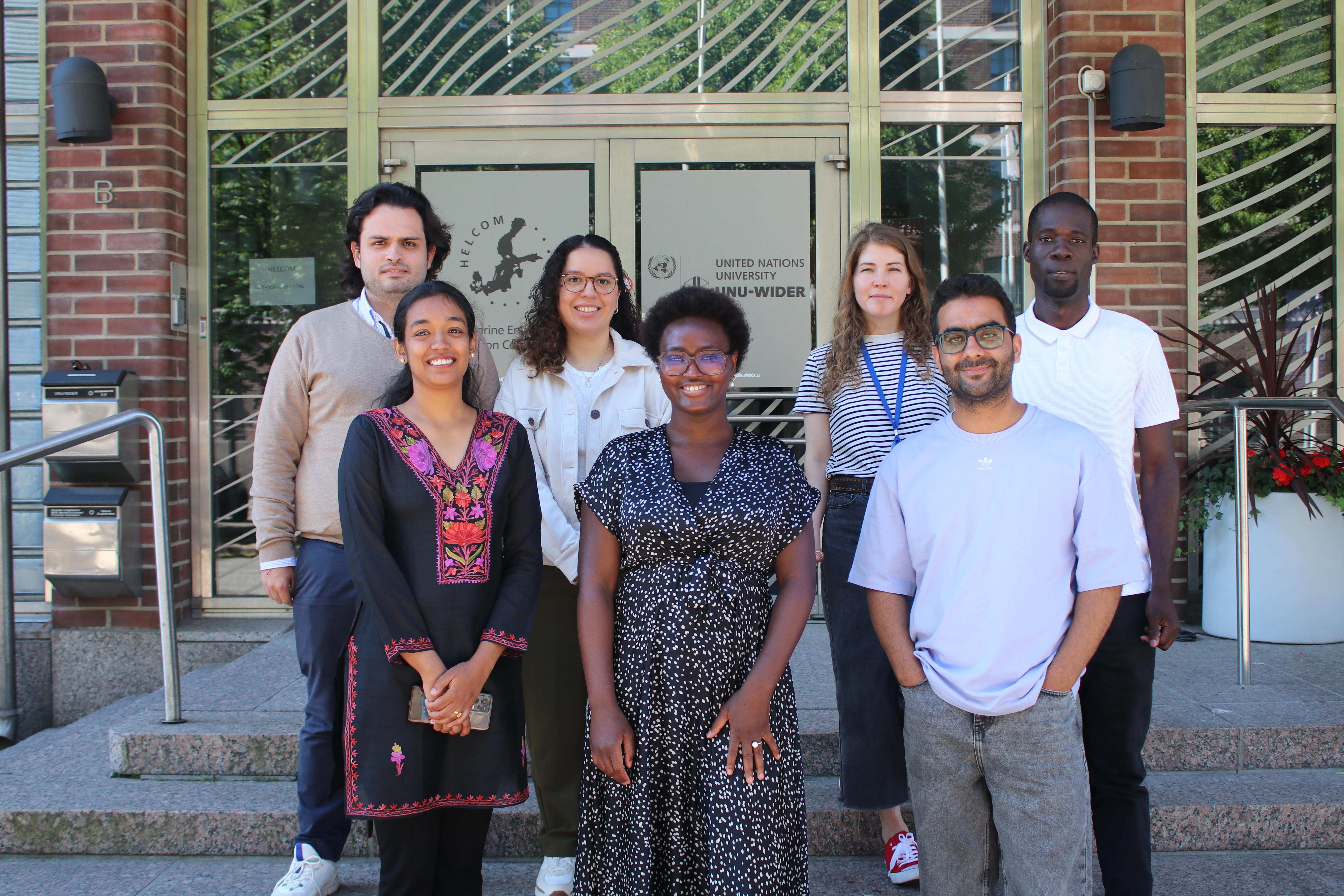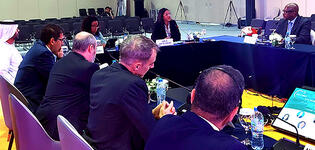Blog
From snow to spring
Research and life lessons from Finland
Coming from a tropical region in India, the Finnish weather, with its sub-zero temperatures, were an unfamiliar challenge, but I was inspired by the Finns seamlessly navigating their daily lives amidst snowstorms and their incredible strength (a concept known in Finnish as sisu, loosely translated to extraordinary determination). During my three-month stay in Helsinki, I learned the essence of sisu—witnessing how it shapes daily life here but how sometimes even harsh conditions are made more bearable from the strong social safety nets and functional infrastructure.

Research inspiration from Finnish society
My PhD research is on social safety nets in urban India, where I study a large-scale public works programme in the urban areas of Rajasthan under the supervision of Prof Reetika Khera at IIT Delhi, India. A primary focus of my study is on gender disparities in the labour market and how such government interventions can alleviate that.
In Finland, I saw a society with a great amount of gender equality and equity, especially in the labour market. The fact that the Finnish government takes so many crucial measures for women to actively participate in the economy explains its outstanding performance on gender and human development indicators. Some of their best practices involve inclusion of unpaid and domestic work in national statistics and accounting, well-funded and affordable childcare and elderly care services, and significant investments in time-saving infrastructure like public transport. I believe several of these best practices can be emulated in other contexts and countries, and I hope to convey this message through my research.
At UNU-WIDER, the opportunities and mentorship were aplenty. My visit there came at a time when I had completed my fieldwork in India and was beginning the writing stage of my doctoral thesis, and I needed expert feedback on the arguments I was developing. The presence of area experts there, especially Director Kunal Sen and my mentor Research Associate Rahul Lahoti, pushed my work in directions I had always wanted to explore but struggled to articulate. Rahul’s insightful mentorship helped me shape my working paper and dissertation into publishable material with relevance in ongoing discourses on social protection, gender, and labour markets. The interest shown by academics at UNU-WIDER reassured me that I had valuable contributions to make to the existing literature, a feeling that is much needed in the final stages of one's PhD.
The exchange of views at the weekly seminars and one-on-one meetings with visiting scholars were indeed useful. Moreover, the resources and facilities at WIDER are world-class; I got access to sophisticated data analysis tools and software like ArcGIS Pro, which significantly enriched my thesis.
Sojourn to rediscovery
What impressed me most about experiencing life in Europe for the first time was the public transport system. Its punctuality, accessibility, and efficiency were a symbol of the country's remarkable governance. It helped me understand how good infrastructure contributes to society's wellbeing and justified for me that Finland's place as the happiest nation in the world is well deserved.
As the weather warmed, I got the chance to explore more of Europe with fellow PhD students in my cohort, visiting Porvoo, Finland, Stockholm, Sweden, Tallinn, Estonia, Riga, Latvia, Budapest, Hungary, and Vienna, Austria. Each city's unique blend of historical charm and modernity offered me a complete European experience.
As a cherry on top, I found a wonderful peer group among the fellow PhD students in my cohort of visiting fellows. Our daily lunches, where we discussed everything from society and culture in Africa, Latin America, Russia, and India, to academic publishing and career paths, will always be memorable. These three months at WIDER and Helsinki were a much-needed sojourn to rediscover myself and my research.
Krishna Priya Choragudi is a PhD candidate at the Indian Institute of Technology Delhi. She was a Visiting PhD fellow at UNU-WIDER during spring 2024.
The views expressed in this piece are those of the authors, and do not necessarily reflect the views of the Institute or the United Nations University, nor the programme/project donors.
 Join the network
Join the network




